Myanmar Crackdown Death Toll Passes 520
The civilian death toll in the Myanmar military's crackdown on protesters passed 520 as armed rebel groups on Tuesday threatened the junta with retaliation if the bloodshed does not stop.
World powers have ramped up their condemnation of the military's campaign against the anti-coup movement that is demanding the restoration of the elected government and the release of civilian leader Aung San Suu Kyi.
Washington suspended a trade pact with Myanmar and UN chief Antonio Guterres called for a united global front to pressure the junta after more than 100 protesters were killed in a bloody weekend.
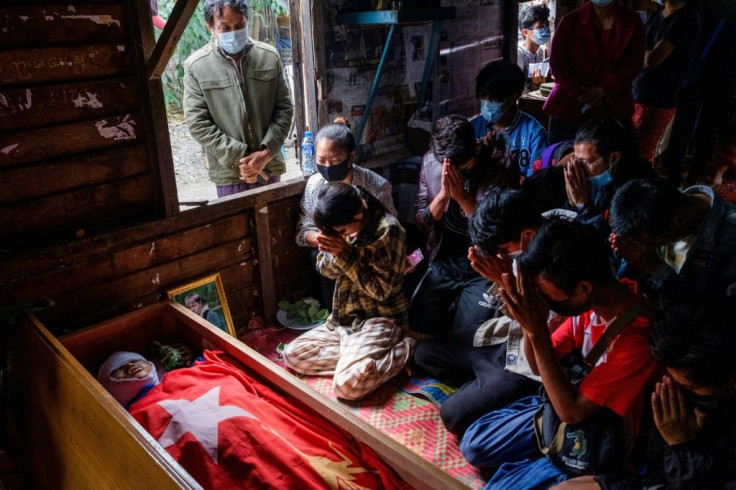
Adding to that pressure campaign, a trio of ethnic rebel groups on Tuesday condemned the crackdown and threatened to fight alongside protesters unless the military reined in its violence.
Daily rallies across Myanmar by unarmed demonstrators have been met with tear gas, rubber bullets and live rounds.
The Assistance Association for Political Prisoners (AAPP) said it had confirmed a total of 521 civilian deaths by late Tuesday night but warned the true toll was probably significantly higher.
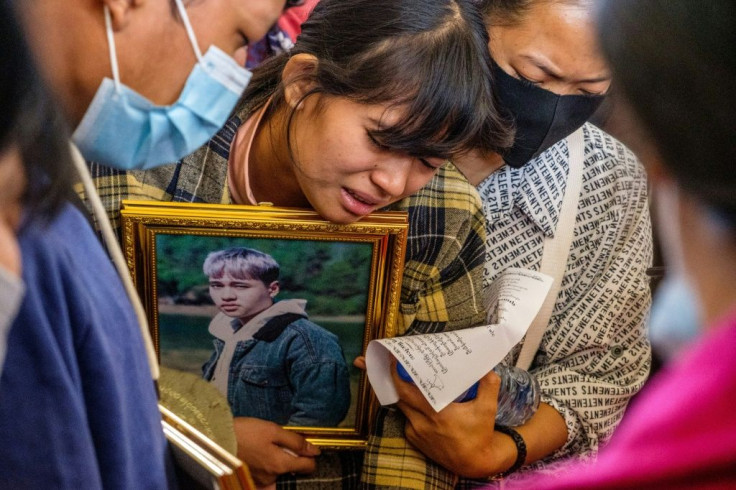
On Tuesday, protesters in Yangon emptied rubbish bags in the streets as part of the latest action.
Eight people were killed Tuesday including a 35-year-old protester in the town of Muse in Shan state, and there were also fatalities at Myitkyina in Kachin state as well as Mandalay and Bago, AAPP said.
State media also reported a protester's death in South Dagon, Yangon, while authorities are investigating a bomb explosion at a police station in the city of Bago which injured a few officers.
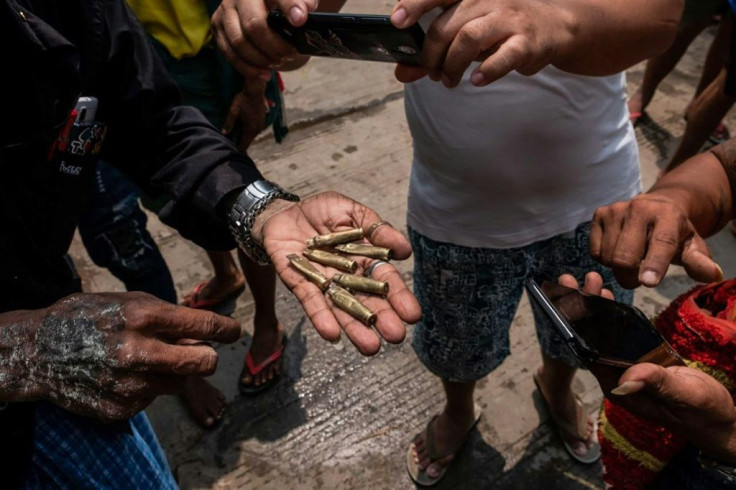
Air strikes launched by the junta also killed six people in eastern Karen state, according to the Karen National Union (KNU), one of the country's largest armed groups.
Three of the country's myriad armed ethnic insurgent groups -- the Ta'ang National Liberation Army, the Myanmar Nationalities Democratic Alliance Army and the Arakan Army (AA) -- issued a joint statement threatening retaliation.
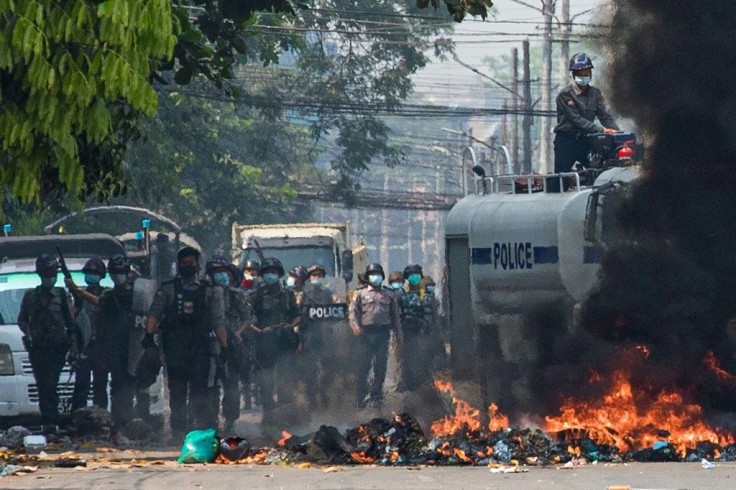
"If they do not stop, and continue to kill the people, we will cooperate with the protesters and fight back," the statement said.
If such groups take up arms, the International Federation for Human Rights (FIDH) warned that the situation could degenerate into civil war.
Two dozen ethnic minority rebellions have flared in Myanmar since independence from British colonial rule in 1948, fighting over autonomy, identity, drugs and natural resources.
The military has sought to cut deals with some armed groups and earlier this month took the AA off the list of terrorist organisations.
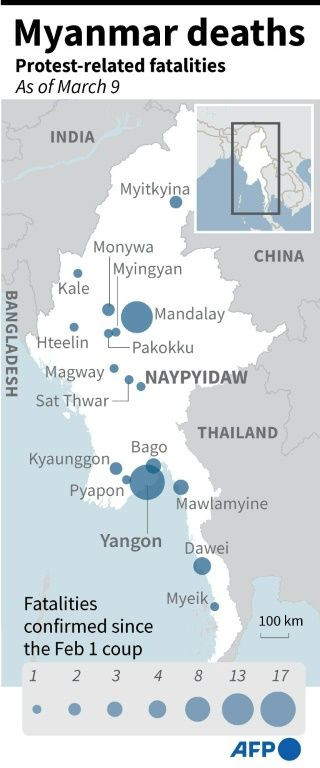
But over the weekend it launched air strikes in Karen state -- the first such strikes in 20 years -- targeting the KNU after the group seized a military base.
Further strikes were launched on Tuesday, but Padoh Saw Taw Nee, the KNU's head of foreign affairs, said it would continue its position of "strongly supporting people's movement against (the) military coup".
Close to 3,000 people fled through the jungle to seek safety across the border in Thailand.
The Thai foreign ministry said late Tuesday about 2,300 have returned back to Myanmar and about 550 remain in Thailand.
"I have never seen it (air strikes) before -- I am so afraid," Naw Eh Tah, 18, told AFP.
Hsa Moo, a Karen human rights activist, told AFP that Thai authorities had pushed the people back and accused them of blocking UN refugee officials from the area.
Thai Prime Minister Prayut Chan-O-Cha insisted that there was "no influx" of refugees and that the kingdom's authorities had not "scared them off with guns or sticks".
Some Karen people injured in the weekend air strikes sought medical treatment Tuesday on the Thai side of the border -- the most serious case was a 15-year-old with a collapsed lung and broken rib.
Thai police said they had intercepted 10 parcels containing 112 grenades and 6,000 rounds of ammunition in northern Chiang Rai province that had been destined for Myanmar's notorious border town Tachileik.
UN Secretary-General Guterres said the crackdown was "absolutely unacceptable" and urged the Myanmar authorities to undertake a "serious democratic transition".
US President Joe Biden's administration announced Monday that the 2013 Trade and Investment Framework Agreement, which laid out ways to boost business but was not a fully-fledged deal, would remain suspended until democracy is restored.
The UN Security Council will meet on Wednesday to discuss the situation, diplomatic sources said, after Britain called for emergency talks.
China added its voice to a chorus of international concern on Monday, calling for restraint from all sides.
The US, Britain and the EU have all imposed sanctions in response to the coup and crackdown, but so far diplomatic pressure has not persuaded the generals to ease off.
© Copyright AFP 2024. All rights reserved.





















